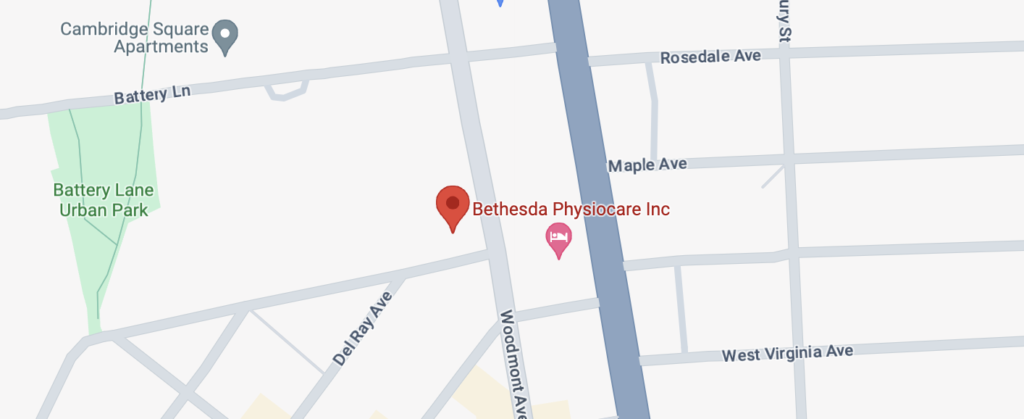
Do you or someone you know struggle with sleep while suffering from chronic pain? Is your chronic pain making it difficult to fall asleep or stay asleep throughout the night? Here, we will discuss how physical therapy can help you fight chronic pain and help you sleep better.
At Bethesda Physiocare, located in Bethesda, MD, we offer a wide variety of chronic pain management services, including dry needling, physical therapy, and exergaming. If you’re struggling with your sleeping habits, consider our team of therapists to help you get back on track. Give us a call at (301) 656-5613 or contact us online to make an appointment.
Sleep 101
Sleep and chronic pain are a rocky back-and-forth dilemma for one person to endure. Sleep can help ease chronic pain, but chronic pain can prevent someone from sleeping. In addition, the lack of sleep can potentially make the pain worse. However, using the proper techniques of chronic pain management can help you get your sleeping schedule back on track. Below are some of the ways physical therapy can improve your sleep if you suffer from chronic pain.
1. Pain Reduction:
One of the primary ways PT helps improve sleep is through pain reduction. Chronic pain conditions such as arthritis, fibromyalgia, and back pain can be managed effectively with PT. Techniques like manual therapy, targeted exercises, and modalities such as dry-needling and low-level laser can alleviate pain. Reduced pain levels make it easier to fall asleep and stay asleep.
2. Enhanced Mobility and Function:
Chronic pain often leads to decreased mobility and function, which can contribute to poor sleep due to discomfort and difficulty finding a comfortable sleeping position. Chronic pain management helps improve mobility and decrease sensitivity, thereby reducing stiffness and discomfort. Improved physical function can make it easier to maintain a comfortable position throughout the night, promoting better sleep.
3. Relaxation Techniques:
PT often incorporates relaxation techniques such as deep breathing exercises, progressive muscle relaxation, and guided imagery. These techniques help reduce muscle tension and stress, which are common contributors to both chronic pain and sleep disturbances. By promoting relaxation, PT can facilitate the onset of sleep and improve sleep quality.
4. Posture Education:
Modifying sleeping posture can be an important strategy to help offload a chronically painful area. Inefficient sleeping posture can exacerbate chronic pain conditions and contribute to sleep disturbances. Physical therapists provide education on proper sleep positions that reduce strain on their muscles and joints. Proper alignment while sleeping can significantly reduce pain and improve sleep quality.
5. Customized Exercise Programs:
Physical therapists design customized exercise programs tailored to the individual’s specific condition and needs. These programs often include stretching, strengthening, and aerobic exercises. Regular physical activity is known to improve sleep quality by reducing pain, stress, and anxiety levels and by promoting a healthy circadian rhythm.
6. Sleep Hygiene Education:
Physical therapists can also provide valuable education on sleep hygiene. This includes advice on maintaining a regular sleep schedule, creating a conducive sleep environment, and avoiding behaviors that interfere with sleep. Good sleep hygiene practices complement chronic pain management by creating an optimal environment for sleep.
7. Multidisciplinary Approach:
Chronic pain management often requires a multidisciplinary approach. Physical therapists work closely with other healthcare providers, such as physicians, psychologists, and occupational therapists, to create a comprehensive treatment plan. This collaborative approach ensures that all aspects of the patient’s health, including sleep, are addressed.
Chronic Pain Management in Bethesda
At Bethesda Physiocare, located in Bethesda, we offer different strategies to help you sleep better with chronic pain management. If you’re struggling with your sleep due to your pain, call (301) 656-5613 today.



